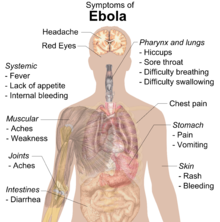The gallbladder may be a small and tiny organ, but it plays a significant role in your digestive system. Located under the liver, the gallbladder stores bile produced by the liver, which, in turn, helps digest fats. Proper care of this organ is crucial for maintaining overall health and preventing painful conditions such as gallstones. Here’s how taking care of your gallbladder can lead to better health.
Understanding the Role of the Gallbladder
The gallbladder’s main function is to store and concentrate bile, which it releases into the small intestine when needed to help break down fats. Without a healthy gallbladder, your digestive system might struggle to process fatty foods, leading to discomfort and digestive issues. Understanding the importance of this organ underscores the need to maintain its health.
Maintain a Balanced Diet
One of the most effective ways to take care of your gallbladder is by maintaining a balanced diet, as a gallstone surgeon London specialist agrees. High-fat, high-cholesterol, and low-fibre diets are known to increase the risk of gallstones, a common gallbladder problem – if you suspect you may have gallstones, click here. Incorporating more fruits, whole grains, and vegetables into your diet can help lower this risk. Healthy fats like those in avocados and olive oil should replace saturated fats in red meat and full-fat dairy products. Regularly consuming fibre-rich foods aids digestion and helps prevent the formation of gallstones.
Stay Hydrated
Proper hydration is essential for overall health, including the health of your gallbladder. Water helps in the digestion process and assists in the elimination of waste and toxins from the body. Staying hydrated can also prevent bile from becoming too concentrated, reducing the likelihood of gallstone formation.
Maintain a Healthy Weight
Obesity is a significant risk factor for gallbladder disease. Excess weight, especially around the abdomen, can increase the amount of cholesterol in the bile, leading to gallstone formation. However, it’s important to lose weight gradually, as rapid weight loss can also increase the risk of gallstones. A steady weight loss plan that includes a balanced diet and regular exercise is the best approach to reducing your risk of gallbladder issues.
Regular Exercise
Physical exercise is crucial for maintaining healthy weight levels and keeping your gallbladder healthy. Regular exercise regulates the levels of cholesterol in your body and improves overall digestion, reducing the risk of gallstones. To keep your gallbladder in good shape, do at least 30 minutes of moderate exercise on most days of the week, such as walking or swimming.
Avoid a Rapid Loss of Weight
While maintaining a healthy weight is important, rapid weight loss can actually increase the risk of gallstones. When you lose weight in a short span of time, the liver will secrete additional cholesterol to the bile, and this can form gallstones. To protect your gallbladder health, it’s better to lose weight slowly and steadily—no more than 1 to 2 pounds per week or half a kilo weekly.
Be Mindful of Symptoms
Even with the best preventive measures, gallbladder issues can still arise. Symptoms such as pain in the upper right abdomen, nausea, vomiting, and digestive discomfort, especially after eating fatty foods, should be monitored. If you experience these symptoms, seeking medical attention promptly is crucial. Early diagnosis and treatment can prevent more serious complications.




